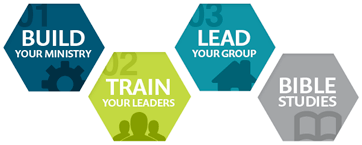Overview
Those of us who have many possessions or few can all be possessed by what we have—or don't have. While Christians should live simply, the focus should not be on getting rid of what we have, but rather upon cultivating the disposition of "a life of joyful unconcern for possessions" (Richard J. Foster). Such a disposition will lead to actions and behaviors of simple living.
This study, based on an article The 'Real' Simple Life, by Matt Bell, will focus on what it means to live simply, and how we can cultivate an attitude of contentment.
Table of Contents
SCRIPTURE: Deuteronomy 26:1–11; Ecclesiastes 5:10–6:9; Matthew 6:25–33; Acts 2:44–47; 2 Corinthians 8:1–9; Hebrews 12:1; Revelation 3:17–20
LEADER'S GUIDE
• Identify the Current Issue
• Discover the Eternal Principles
—Teaching point one: Money and material possessions do not make us content or bring us satisfaction. In fact, they can make us more unhappy and anxious.
—Teaching point two: We should trust that God will take care of our needs—and therefore not be anxious.
—Teaching point three: God's people have an attitude of gratitude and practice generosity because of all that God has done for them.
—Teaching point four: God's people are characterized by the practice of sharing things with each other and contributing to the needs of the poor.
—Teaching point five: Material things and prosperity can be a hindrance in our life as Christian pilgrims in this world. We need to lay aside those things that weigh us down.
• Apply Your Findings
• Recommended Resources
ARTICLE FROM CHRISTIANITY TODAY
• The 'Real' Simple Life, by Matt Bell (ChristianityToday.com 2005)
Total number of pages—





